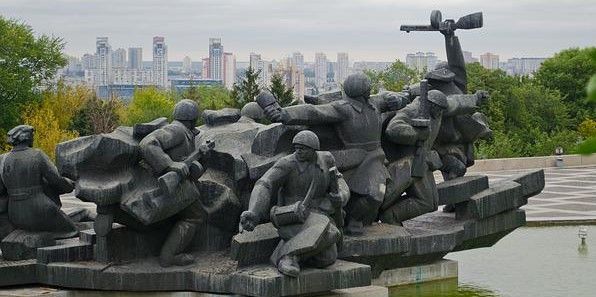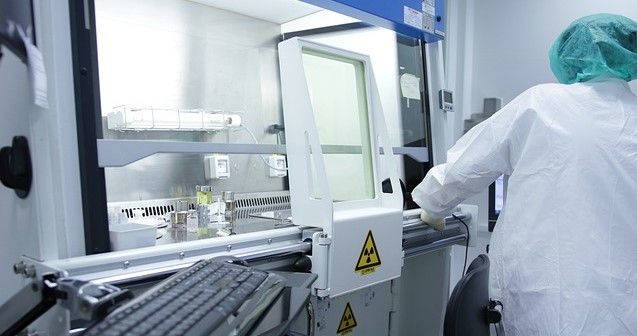The war in Ukraine looks set to continue with both sides committing more manpower and resources to fighting, while a peace agreement seems some way off.
This is having a catastrophic toll on the lives of those nearest the warzone, but the impact on production, logistics, and business extends far beyond Ukraine’s borders.
To learn more about this topic, read How Two Ukrainian Chemical Companies are Reacting to War or A Snapshot on How the Ukraine War is Impacting Supply Chains
Like ripples on a pond, the impact of the conflict is worse at the centre but has many aspects that reach out into many different fields. Here are just some of the ways that the conflict is impacting chemical businesses.

The Impact on One Chemical Business in Ukraine
“Before the war, Ukraine had a thriving synthetic chemistry sector,” reports UK-based Chemistry World. This included thousands of novel compounds that were being produced for the wider chemical industry. “[For example,] Around 80% of all screening compounds used in drug R&D were made in either Ukraine or Russia.”
All that was disrupted at the outbreak of the war.
“When the invasion started, we stopped all work,” explains Ivan Kondratov, head of medicinal chemistry Enamine – a producer of chemical building blocks. “[We] prioritised the safety of our employees and their families. Then we tried to ensure the safety of our facilities and warehouses. Our managers continued to work, keep in contact with the customers, and process inquiries and orders.”
His company was fortunate in being able to relocate all of its screening compounds (more than three million of them) to a new facility away from the fighting.

Despite these efforts, production and the delivery of chemical materials was impossible during the first few weeks. Things have stabilised since then, with most staff able to return to work. But the conflict is still having a much wider knock-on effect over a variety of industries and economies.
The Impact on Truck Drivers
One example of this is the growing shortage of truck drivers in Lithuania.
“Ukrainian drivers are leaving to defend their homeland,” says Ričardas Sartatavičius, head of the Lithuanian Confederation of Industrialists. “It cannot be otherwise. Those who can defend it must do so.” While some drivers from Belarus are being used as replacements (ironically leaving Belarus to avoid being drafted to fight in Ukraine), the shortage is still clear.

The Impact on Raw Material Supplies
The war has also brought on a lack of raw materials at a time when supply chains were already stretched following the global pandemic.
The countries that are worst hit are those that are closest to the fighting, such as Romania, Moldova, and Poland. However, the sanctions that Western economies have applied against Moscow have also impacted businesses which neighbour Russia, especially those with historical and cultural ties. This has caused considerable upset to the manufacturing sector in Lithuania, Latvia, and Estonia, among others.
“The biggest problem we face is the supply of raw materials,” says Sartatavičius, during a discussion in the Parliamentary Committee on Economic Affairs. “This is because most of the raw materials came from Ukraine, which is fighting for its freedom, and some of the raw materials also came from Russia.”

Sartatavičius went on to explain how some production had already been halted completely due to a lack of raw materials. In response, governments are looking to larger Western economies for assistance. For example, a cooperation between the EU and Baltic states would allow for an improved bargaining position for substitute products - a position supported by many concerned manufacturers close to Russia.
A Triple Impact on Business
Aurelijus Dabušinskas, head of the Economics Department at the Bank of Lithuania, believes that the full impact of the war in Ukraine will come from three key areas.
“The first effect would be the one that comes through foreign trade. The second would be through commodity prices, mostly through energy prices, but also through agricultural products or food prices. The third channel,” the economist notes, “would be an increase in uncertainty about the economic future. This has a negative impact both on household consumption trends and on companies’ investment plans.”
The Ministry also believes that finding replacement suppliers and substitute raw materials is possible, but not without paying a much higher price.
The Russian invasion is hampering more than just Ukrainian production. Instead, it is damaging the wider supply chain, chemical product prices, the cost of manufactured goods, and the distribution of raw materials all over the globe.
Hopefully, cooler heads will soon prevail and economic conditions can soon return to normal. Until then, nothing in the chemical industry will be easy.
Photo credit: Arek Socha on Pixabay, Peggy und Marco Lachmann-Anke, Alexander Fox, Bokskapet, & Mickey Estes